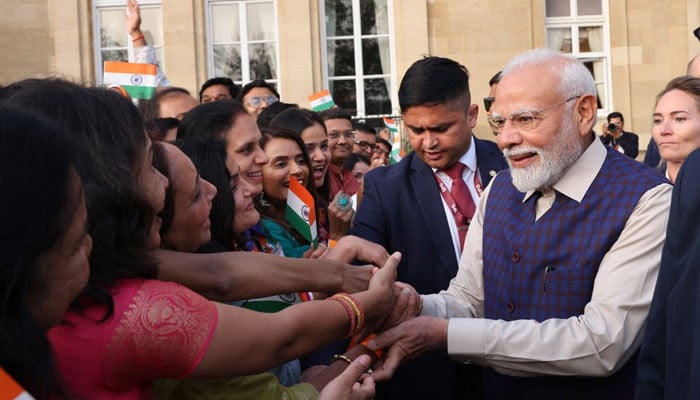Modi-Starmer Trade Deal: A Critical Test for UK's Post-Brexit Economic Strategy
Prime Minister Keir Starmer welcomes India's Narendra Modi to London for the signing of a landmark trade deal worth £4.8 billion annually to the UK economy. The meeting highlights the delicate balance between economic priorities and human rights concerns, particularly regarding the detention of a Scottish Sikh activist and the recent Air India tragedy.

British Prime Minister Keir Starmer and Indian Prime Minister Narendra Modi meeting in London for trade deal signing
UK-India Trade Agreement Takes Centre Stage Amid Human Rights Concerns
British Prime Minister Keir Starmer welcomed Indian Prime Minister Narendra Modi to London on Thursday for the formal signing of their landmark trade agreement, a pivotal moment that underscores the complex balance between economic pragmatism and human rights advocacy in post-Brexit Britain.
Economic Implications and Strategic Significance
The much-anticipated trade deal, projected to add £4.8 billion annually to the British economy, represents a significant shift in the UK's post-Brexit trade strategy. However, it arrives at a critical juncture when Starmer's government faces mounting pressure to address both economic challenges and human rights concerns.
'Our landmark trade deal with India is a major win for Britain,' Starmer stated, though the declaration comes amid growing scrutiny over the broader implications of closer UK-India ties.
Key Trade Agreement Elements
- Projected £25.5 billion boost in bilateral trade
- Reduction in tariffs on UK exports including whisky and medical devices
- Reciprocal cuts on Indian textile, footwear, and food exports
- Support for over 600,000 jobs across both nations
Human Rights and Diplomatic Challenges
The meeting occurs against a backdrop of serious human rights concerns, particularly regarding the case of Scottish Sikh activist Jagtar Singh Johal, imprisoned in India since 2017. This situation presents a delicate diplomatic challenge for Starmer's government, which has positioned itself as a defender of civil liberties.
Air India Tragedy: Seeking Answers
The recent Air India disaster, claiming 241 lives including 52 British nationals, adds another layer of complexity to the bilateral discussions. British families' lawyers are pressing for answers regarding concerning reports of misidentified remains, expecting Starmer to address these sensitive issues during the talks.
Analysis: Balancing Economic Pragmatism with Progressive Values
This trade agreement exemplifies the challenging balance between pursuing economic opportunities and maintaining commitment to progressive values and human rights. As Britain navigates its post-Brexit reality, the success of this deal may set important precedents for future international partnerships.
Thomas Reynolds
Correspondent for a London daily, specialist in British foreign policy and transatlantic issues.
